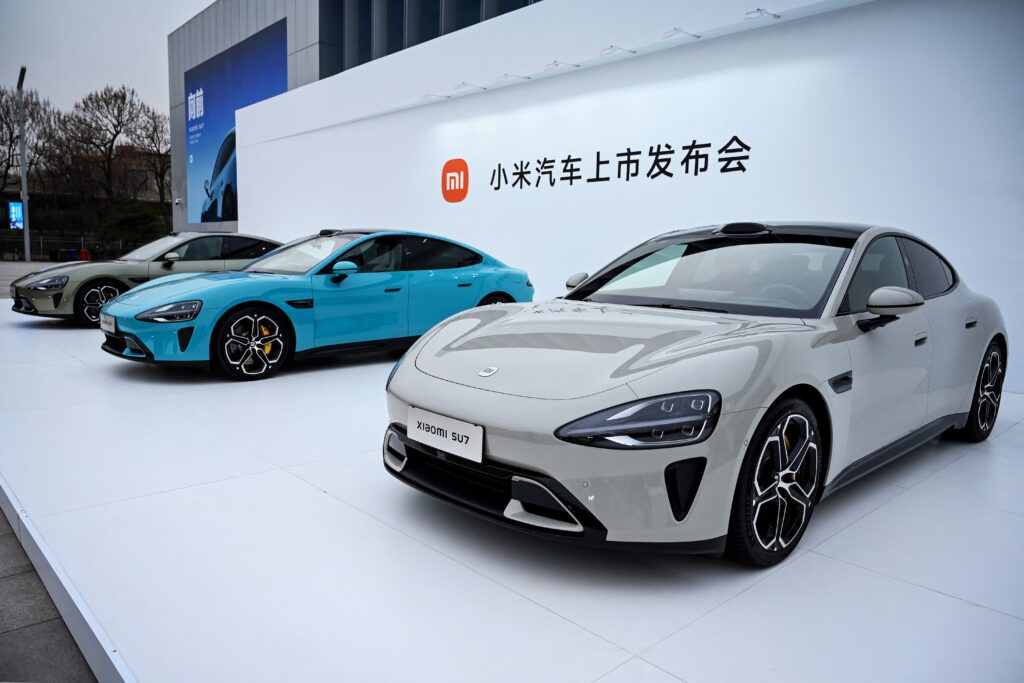- Xiaomi is warning EV customers could face a wait time of four to seven months, Reuters reported.
- The delays could be a sign of strong demand for the smartphone maker's first-ever EV.
- Last week, Xiaomi launched the Speed Ultra 7 in a Beijing event.
Customers wishing to purchase one of Chinese smartphone maker Xiaomi's new electric vehicles could be kept waiting for up to seven months, Reuters reported.
The company advised potential buyers that wait times for its SU7 electric sedan could range from four to seven months, the report said, citing Xiaomi's car app.
Last week, Xiaomi launched its first line of EVs, the Speed Ultra 7 (SU7), at a lavish event in Beijing.
Within 24 hours of the launch, pre-orders for the vehicle had hit 88,898, per Reuters.
It comes just over a month after fellow smartphone powerhouse Apple abandoned its own decadelong EV dream following a string of design issues and leadership changes, Bloomberg reported.
While the delays may be a promising sign of strong demand for the SU7, the Beijing-based tech giant has entered the EV market at a precarious time.
The market for electric vehicles has generally been on the decline, and the company faces steep competition in China.
Leading EV companies, including Tesla and BYD, have been slashing prices in a price war aimed at winning over consumers.
Xiaomi is also aiming for the upper end of the Chinese auto market.
Xiaomi's standard SU7 costs 215,900 yuan, which is around $30,000. That's roughly 30,000 yuan less than Tesla's Model 3 in China.
The Pro version is 245,900 yuan, or around $34,000, and the Max is 299,900 yuan, which is about $41,500.
Analysts cited by Reuters said Xiaomi may benefit from its smartphone expertise, as it could help the company design smart dashboards.
Xiaomi also has much larger cash reserves to fall back on than smaller EV startups, meaning it could be well-placed to navigate China's crowded market.
Representatives for Xiaomi did not immediately respond to a request for comment from Business Insider, which was made outside of regular working hours.










